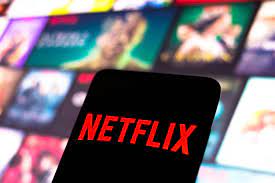When you open a new bank account and set up online access to your account, a bank employee may say something like this to you: “Do not share your password with anyone!”
And you may find yourself thinking, “Of course not. Do I look like an idiot? I’m just going to save it on my computer in a file called ‘Important passwords.”’
Sharing your bank password would be like passing around your ATM card. Before you know it, you’ll be writhing on the floor in misery and getting comforted by your pet dog, who knows what it’s like to have no money in his name.
Almost every website or app wants you to create an account using a password, and sharing most of these passwords is not advisable. You might find yourself promoting illicit drugs on your social media pages, tweeting anti-vaccine messages, or emailing your friends to let them know that you’re raising money to join the armed forces in Ukraine and need them to immediately wire money to a bank account in Nigeria.
Yes, sharing passwords is generally not a good idea, but for many people, streaming services are an exception. When it comes to passwords for Netflix, Amazon Prime, Disney+ and other streaming services, millions of people have adopted a simple philosophy: “Sharing is caring.”
To them, a Netflix subscription is like a private swimming pool: it’s perfectly fine to allow your friends and family members to enjoy it, as long as they don’t all jump in at the same time.
Netflix and other streaming services may frown on password-sharing, but isn’t it reasonable to do so, to some extent?
Sharing your password with your spouse or partner is necessary, of course, especially since you share so many other things. Refusing to share your Netflix password would be a relationship-breaker, no different than refusing to share a drink.
But what about your children? If they’re still young and live at home, it makes sense to share your password with them, so they can stream their favourite movies and shows to their devices. If they’re fully grown-up and living on their own, sharing your password with them is a good way to reward their independence. It’s also a good way to maintain the family connection. No need to buy them a house-warming gift.
Your children, of course, would share the password with their partners, who would share the password with their siblings. And soon, two entire families will be sharing a single Netflix subscription, sending blessings in your direction every time they watch “Bridgerton.”
What’s the harm in this? Well, for starters, Netflix imposes restrictions on the number of devices that can stream content at any given time, depending on the type of subscription. The basic subscription limits you to a single device, so if you want to share it with friends or family members, you need to coordinate watching times. You can watch in the evening, while your aunt watches in the morning, your parents watch in the afternoon, and your cousin watches from midnight onwards, which is quite convenient for him, because not only does he live in a different time zone across the world, he is also currently unemployed.
But while this arrangement increases viewership considerably, it doesn’t make Netflix happy. In recent months, the company has lost more subscribers than it has gained, and it lays the blame partly on password sharing. More than 100 million households around the world are using a shared password, according to Netflix. The company plans to charge a little more for subscriptions that are being used in multiple households.
In other words, it might be time to send a message to your cousin, your aunt and even your parents: “Sharing is caring, so would any of you like to share the subscription fee?”



